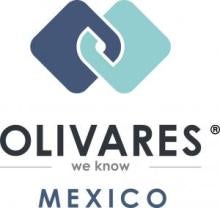In Mexico, the new Federal Law for the Protection of Industrial Property (LFPPI) protects and recognizes Well-Known and Famous trademarks, which are regulated by Chapter III of the LFPPI. Its definition can be found in article 190, which establishes that in Mexico, a brand is considered well-known when a certain sector of the public or commercial circles in the country are aware of the brand as a consequence of the commercial activities carried out in Mexico or abroad by a person who uses that brand in relation to its products or services, as well as a consequence of the promotion or advertising of the brand.
In the same way, the same article indicates that a brand is famous when it is known by the majority of the consuming public, or when it has a diffusion or recognition in global commerce.
The declaration process must be initiated before the Mexican Institute of Industrial Property (IMPI) by request of the owner of the trademark rights of the mark that he intends to declare as famous or well-known, providing the evidence that he considers necessary so that the IMPI can evaluate and make a decision on the grant.
In the event that the IMPI decides to grant the declaration of a famous or well-known trademark, the effects of the said declaration will lead to the nullity of similar or equal registrations, regardless of the class of products or services in which they are registered. The granting of a famous or well-known trademark is understood as a “trademark monopoly” which is protected by the 34 classes of Nice.
Hence, the said declarations can be used as evidence in connection with infringement procedures, as well as invoked in opposition procedures. For example, let us assume that “Hogwarts” has been declared a famous or well-known trademark, the owner of its trademark rights can oppose trademark registration applications, or request the administrative declaration of nullity, for identical or confusingly similar trademarks, regardless of the class in which they are registered for nullity, or in process for opposition.
The recognition of both trademark figures is valid throughout the Latin American region, although the protection procedures vary in each country. In Mexico, Brazil and Costa Rica, its systems provide a sui generis protection system, in contrast to Argentina, Bolivia, Chile, Colombia, Peru, Paraguay, Ecuador and Uruguay, where famous and well-known trademarks can only be recognized through opposition procedures.
In Mexico, the recognition of well-known and famous trademarks is a complicated procedure, where the IMPI requires a rain of evidence by the interested applicant to show that the trademark whose declaration is seeked, is known by everyone in the market. If the evidence satisfies the IMPI standards, the declaration will be granted, otherwise, it will be denied.
Some strategies for the pursuit of trademark titles, specifically in the entertainment industry, will now be addressed.
Generally speaking, copyright holders do not seek protection for the titles of their works through trademark registrations. Such works include movies, television shows, or any other copyrightable works, as this would be unnecessary and costly. However, Mexican law provides good legal mechanisms to protect the titles of these works.
Under the Federal Law for the Protection of Industrial Property (LFPPI), which has been in force since 2020, sections XIII and XIV of article 173 specifically states that the titles of movies or series or any other work, as well as any elements contained in it, and the names, surnames, nicknames and pseudonyms of famous people, cannot be registered as a trademark without the prior consent of the copyright holder. However, the Law requires the work to have a certain “relevance” or “recognition”, and that because of this, the granting of the trademark registration may lead the consuming public into error and make them believe that there is a relationship or association between the registration mark and the work. This also applies to the “reserve of rights” figure, where characters or group names may not be registered as trademarks without the prior consent of the rights holder.
Section XXII of article 173 of the LFPPI, also mentions that trademark registrations will not be granted when they are requested in bad faith. Bad faith is when the applicants go against good practices in commerce or industry, against the correct system of industrial property, or when they act with the intention of obtaining an advantage or benefit to the detriment of the legitimate trademark rights holder. The previously mentioned provisions protect brands of the entertainment industry, as well as titles, works, characters and artistic names.
The rules mentioned above extend to any property, whether known or unknown. Generally, producers of audiovisual productions that will not be the purpose of merchandise marketing campaigns, do not have to obtain trademark registrations for the titles of their works. As indicated in previous paragraphs, the Law already provides sufficient protection mechanisms for titles. Similarly, titles can be provisional and be changed for another when the production is finished, which would leave the first record without any purpose.
The purpose of the titles is to identify a work mainly from an artistic point of view. As an exception to the rule, only a small number of movie or series titles should become a product or service brand. For example, in productions with a high impact on world society, such as The Lord of the Rings, Game of Thrones, Harry Potter, Star Wars, productions of the Marvel, Disney or DC universes, or any other production that intends to market products or services, such as toys, clothing, video games or even cell phone cases, are the ones that must seek protection through a trademark registration in the corresponding Nice class, or if applicable, seek the declaration of a famous trademark or well-known brand.
Similarly, in the new LFPPI, there is an impediment for productions that do not intend to market products or services. There is a declaration of use every 3 years from the granting of the trademark whereby the registration owner must declare, under protest to tell the truth, that the trademark is still in use. If such a declaration is not made or the trademark is not being used, it will expire automatically.
Mexican Soccer Federation vs NETFLIX & Alazraki Films.
It is worth highlighting a recent case in relation to the authorization of titles and trademarks within the entertainment industry, for incidental use within audiovisual productions.
In previous years, the Mexican Football Federation (FEMEXFUT) initiated an infringement procedure against NETFLIX & Alazraki Films before the IMPI, where the grounds for filing action was due to the unauthorized use of the Mexican Football Federation logo within some of the chapters of the series called “Club de Cuervos”, as well as acts of unfair competition.
The IMPI resolution was favorable to NETFLIX & Alazraki Films, where it denied that it had carried out acts of infringement to the detriment of FEMEXFUT. They concluding that the simple appearance of the FMF logo within the series did not constitute a use of the brand, but only an exhibition for artistic purposes. Similarly, the IMPI concluded that such an act could not be considered unfair competition since the simple exhibition for artistic and non-commercial purposes was not an act, contrary to good business practices.
Subsequently, FEMEXFUT filed an appeal suit before the Federal Court of Administrative Affairs (FCAA). The Court’s resolution was to order IMPI to annul its resolution, and to decree an administrative infraction based on acts of unfair competition, concluding that the reproduction of a trademark without the authorization of its owner constitutes an act contrary to good practices in the trade.
Upon hearing the ruling of the FCAA, NETFLIX & Alazraki Films filed an amparo claim against the resolution, which was turned over for study to the 22nd Circuit Court in Mexico City, which granted the amparo to NETFLIX & Alazraki Films, concluding that the decision by the FCAA was unfounded due to a deficiency in the analysis of the concept of “competitors in the market”. The FCAA was ordered to issue a new sentence, analyzing the cause of infringement contained in section I of article 213 of the Industrial Property Law in force at that time, by studying whether FEMEXFUT and NETFLIX & Alazraki Films were competitors in the market.
As a result, the FCAA issued a new ruling, in which it concluded that FEMEXFUT and NETFLIX & Alazraki Films were indeed competitors in the market, pointing out that the display of the FEMEXFUT logo in the Club de Cuervos chapters was an act of unfair competition., emphasizing that the “reproduction” of the trademark without the authorization of its owner consisted of acts contrary to good commercial practices.
Consequently, NETFLIX & Alazraki Films filed a new amparo against the second sentence of the FCAA, which was turned over to the same Circuit Court that analyzed the first amparo filed. The Circuit Court again granted an amparo in favor of NETFLIX & Alazraki Films, arguing that the incidental appearance of the logo in the context of the series, cannot be considered an act of unfair competition, since the incidental appearance of said logo cannot be considered a use of trademark, being only a display with artistic purposes that made the series more realistic. The FCAA was then ordered to issue a new sentence denying the infringement action contained in section I of article 213 of the Federal Law of the Industrial property.
Therefore, the FCAA issued a ruling denying the cause of infringement contained on section I of article 213 of the Industrial Property Law as ordered by the FCC, concluding that the display of the logo of the Mexican Soccer Federation within the CLUB DE CUERVOS series does not constitute trademark use, neither an act of unfair competition but an atypical display of a trademark with artistic and non-commercial purposes, confirming the original decision of the IMPI.
The mere incidental reproduction of a trademark does not constitute use:
In the same way, it is clear that the use of a trademark occurs when marketing a product or when providing a service. Thus, the brand is a true vehicle for consumers to find the product or service of their choice in the market.
The idea that underlies the requirement of use with a distinctive purpose is that the use of the mark made to fulfill a purpose other than to distinguish the products or services of the owner within the market, must be outside the monopoly on the use of the distinctive sign that the mark gives to the holder.
For this reason, it cannot be affirmed that a sign is used as a trademark in the exercise of functions that are unrelated to those of trademarks, such as those of an educational, informative, informative or ornamental nature, as well as all the behavior of third parties that do not comply with the requirement of “use of the brand” must be treated through different mechanisms, such as acts of unfair competition.
On the other hand, it is considered pertinent to cite the following legal precedents at the international level where it was concluded that the incidental appearance of a brand within an audiovisual production does not have the characteristics of the use of a Brand:
– Caterpillar Inc.v. The Walt Disney Company, and Buena Vista Home Entertainment, Inc. No. 03-1334., United States District Court, C.D. Illinois.
In the present case, Caterpillar Inc. filed a lawsuit for trademark infringement and unfair competition against The Walt Disney Company and Buena Vista Home Entertainment, Inc. Caterpillar Inc. alleged that in a scene of the film entitled “George of the Jungle 2”, bulldozers or excavators that appeared in the scene identified with the Caterpillar brand, in the way in which the company had marketed them in the market. These bulldozers were used in the destruction scene of the “Mountain of the Apes”
The District Court of Illinois, in the United States of America, dismissed the action filed by Caterpillar Inc. arguing that the affixing of the Caterpillar brand in the aforementioned scene did not constitute use of the brand. These considerations were based on the fact that they were not products or service offers identified with the brand, but that they appeared within an artistic frame of reference in the context of the plot of the cinematographic work. Similarly, the District Court dismissed the action based on acts of unfair competition.
-Louis Vuitton Mallatier S.A. v. Warner Brothers Entertainment, Inc. No. 1: 2011cv09436 Document 29 (S.D.N.Y. 2012), United States District Court, Southern District of New York.
In the present case, Louis Vuitton Mallatier S.A. filed a trademark infringement lawsuit against Warner Brothers Entertainment, Inc. alleging that a counterfeit version of a Louis Vuitton bag used by the character of “Alan” appeared in a scene from the film titled “The Hangover Part II” played by Zack Galifianakis.
The Court in charge of resolving the matter considered that the aforementioned scenario did not constitute a “trademark use” but, in any case, an artistic use based on the right to freedom of opinion and expression, because the use was solely for the object to reveal the personality of the character “Alan”, who was characterized as a “socially weird” and “lonely” character.
In addition, the renowned academic Pratheenan Gulasekaram, Professor of Law at the University of Santa Clara, referred specifically to these incidental appearances of trademarks in the context of audiovisual works, indicating the following: “Movies are mainly and to a large extent mostly non-commercial expressions with commercial elements sprinkled throughout their artistic message.” This reinforces the fact that the visible appearance of a trademark within a film does not constitute a use of a registered trademark. Therefore, it is not necessary to request or obtain prior authorization from trademark registration holders to include them in the filming.




 />i
/>i

